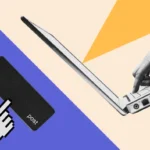
Japanese startup Triple W Japan has developed a wearable device designed to give a little piece of mind to anyone who worries about unpredictable bowel movements.
Worn on the stomach, the DFree predicts the timing of bowel movements by using an ultrasonic sensor to scan activity in the bowels. Data is sent via Bluetooth to a mobile phone app, which then notifies the wearers before they even get an inkling that they will need to use a bathroom.
The app also makes a record of the wearer’s bowel movements, which is then used to help it become more accurate.
Though it can be used by anyone, the DFree is aimed at the elderly and people with disabilities. It could also be useful for potty-training toddlers. It’s currently being crowdfunded via the ReadyFor? site, with possible contributions including ¥18,000 for a device that predicts urination times, ¥24,000 for one that predicts bowel movements and ¥36,000 for one that predicts both.
Contents
Sprouting new ideas for plant lovers and farmers
Another crowdfunded project of interest is SenSprout, a tool to help anyone with green fingers monitor the needs of their plants.
Clearly in demand — it reached its Indiegogo crowdfunding target of $10,000 in just one day — SenSprout monitors the moisture level in soil and uses LED lights to indicate a plant’s needs to its users. Shaped like two leaves on a stem that is stuck into the soil of a plant pot or field, the device’s electronic-circuit sensor is printed in conductive ink, which reduces the cost of production. It also runs on just one AA battery. The LED lights on one of the leaves changes color — red for not enough moisture, blue for just the right amount and green for too much. The other leaf monitors the moisture on plant leaves, for example from watering.
SenSprout Inc. estimates that if farmers also used the device, they could use up to 30 percent less water while helping optimize plant growth. It’s also designed to be far cheaper than alternative monitoring methods. You can get a craft kit to make a SenSprout via the Indiegogo website for a contribution of $55.
Cosmos Initia makes you feel virtually at home
DIY virtual reality goggles have become a bit of a trend lately and real estate company Cosmos Initia has found a clever way of using them for something other than pure entertainment. Working with the tech company and art group TeamLab, last month it released the Haco-mansion VR — an apartment-showroom smartphone app that works with Google Cardboard VR viewers.
Prospective buyers were invited to view an apartment showroom without having to leave their current homes. The 300 applicants to the scheme were sent a flat-packed Google Cardboard viewer and asked to download the Haco-mansion app, which allowed them to explore rooms and even check the view from different floors of an apartment block.
The idea won’t replace on-site viewings, but it could become a useful way of making sure buyers are serious about an apartment before taking them out there to see the real thing.
[“source-japantimes.co.jp”]







